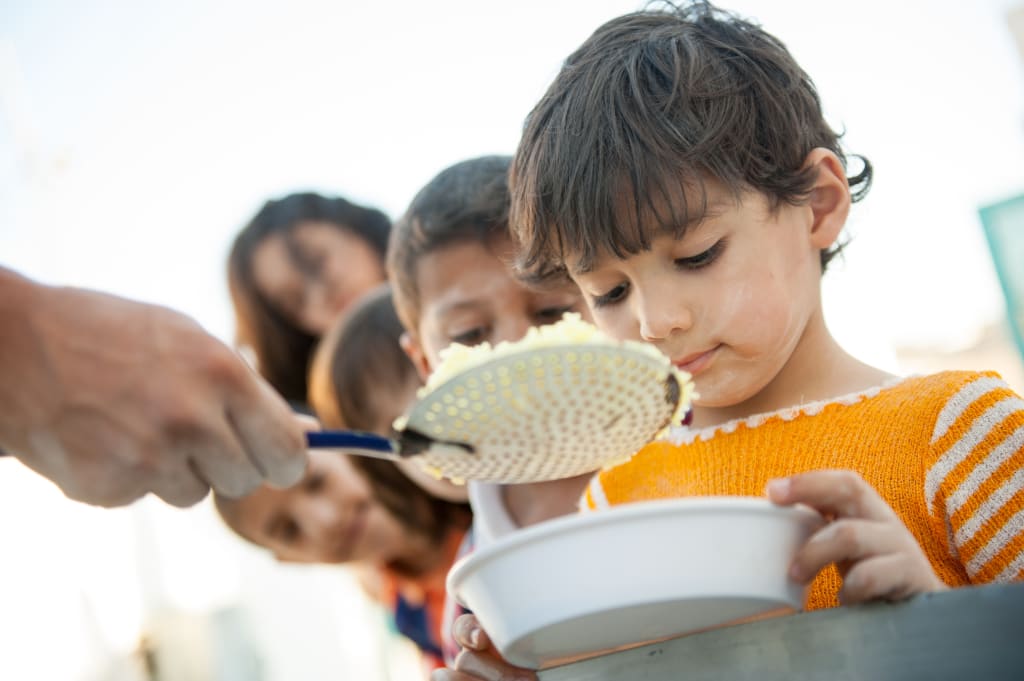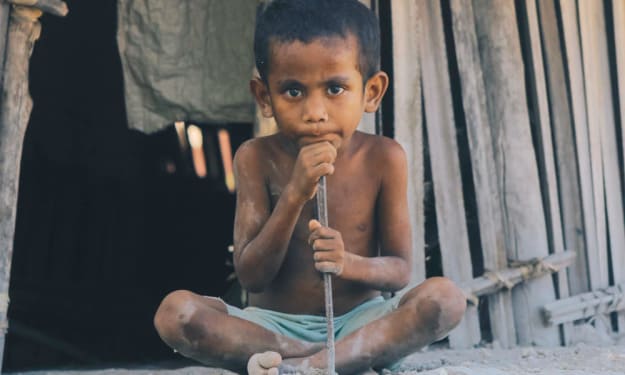The Role of NGOs in Child Development
NGOs' significant impact on child development

Every child deserves a nurturing and safe environment to grow and thrive. Sadly, not all children can access the resources and support they need for optimal development. This is where non-governmental organizations (NGOs) play a crucial role. In this blog post, we will explore NGOs' significant impact on child development and how their efforts empower future generations. This article is specifically tailored for social welfare workers and social service workers dedicated to creating positive change in the lives of children.
Understanding the Importance of Child Development:
Child development is a multifaceted process encompassing physical, cognitive, emotional, and social growth. The foundation for a child's future well-being and success is established during this time. NGOs recognize the criticality of investing in early childhood development and work tirelessly to provide children with the necessary tools for a brighter future.
NGOs understand that investing in the early years of a child's life has a profound impact on their overall development. Research shows that children who receive quality care and support in their early years are more likely to excel academically, have better social and emotional skills, and experience improved long-term outcomes. By focusing on early childhood development, NGOs address the root causes of societal issues and set the stage for a more potent, stable, and equitable future.
Ensuring Access to Education:
The right to education is every child has fundamental right. However, numerous barriers hinder children from marginalized communities from accessing quality education. NGOs play a vital role in ensuring access to education for children from disadvantaged backgrounds. They establish and support schools, provide scholarships, and develop innovative educational programs that cater to the unique needs of children in their care.
In India, several NGOs are working tirelessly to promote education and bridge the educational gap. Pratham is one such organization that focuses on improving education for underprivileged children. Pratham has reached millions of children across India through innovative learning models and partnerships with local communities, providing them opportunities for a brighter future.
Save the Children is a prominent NGO, aiming to provide every child access to quality education in India. They work closely with government institutions, communities, and families to improve education policies, establish child-friendly learning spaces, and support marginalized children.
Additionally, CHINAR International significantly contributes to education in conflict-affected regions like Jammu and Kashmir. They focus on providing quality education and psychosocial support to children affected by violence and displacement. Through their efforts, CHINAR International empowers children with the necessary skills and knowledge to overcome adversity and build a better future.
Promoting Health and Nutrition:
Proper nutrition and healthcare are essential for a child's holistic development. Unfortunately, many children face malnutrition and lack access to vital healthcare services. NGOs actively promote health and nutrition initiatives by providing vulnerable children with nutritious meals, health screenings, and medical care.
Akshaya Patra Foundation, one of the largest NGOs in India, focuses on providing nutritious meals to school children to improve their health and enhance their educational outcomes. With the implementation of the Mid-Day Meal Scheme, they have successfully reached millions of children, ensuring they receive at least one healthy meal a day.
Smile Foundation is another prominent NGO that addresses children's health and nutrition needs in India. They work towards preventing malnutrition, conducting health camps, and providing medical support to underserved communities. By focusing on immediate and long-term health needs, these NGOs contribute to the overall development of children.
Ensuring Protection and Safety:
NGOs are at the forefront of protecting children's rights and ensuring their safety. They collaborate with local communities and government agencies to prevent child abuse, exploitation, and trafficking. Through awareness campaigns, counseling services, and advocacy, NGOs empower children and their families to recognize and address harmful situations, creating a safe environment for growth.
Childline India Foundation is a leading NGO in India that operates a 24-hour helpline for distressed children. They provide immediate support and rescue services, ensuring the safety and protection of children facing various forms of abuse. Childline collaborates with government agencies, law enforcement, and communities to create a protective network for children.
CHINAR International also plays a significant role in protecting and supporting children affected by conflict in Jammu and Kashmir. They provide psychosocial support, education, and vocational training to help children heal from trauma and build a brighter future.
Providing Emotional and Social Support:
Emotional and social development is crucial for children to build healthy relationships and develop resilience. NGOs provide counseling, mentoring, and recreational activities that nurture emotional well-being and social skills. Creating safe spaces and support networks fosters a sense of belonging and enables children to overcome adversity.
Salaam Baalak Trust is an NGO that works with street children in India, providing emotional and psychological support. They offer counseling services, recreational activities, and life skills training to help children cope with challenges and reintegrate into society. Through their holistic approach, Salaam Baalak Trust empowers children to build and secure a better future for themselves.
CHINAR International also emphasizes the importance of psychosocial support for children affected by conflict. They offer trauma counseling, art therapy, and community engagement programs to help children heal and develop coping mechanisms. By providing emotional and social support, CHINAR International empowers children to express their emotions, build self-esteem, and develop positive social interactions.
Empowering Families and Communities:
Child development is intertwined with the well-being of families and communities. NGOs recognize this and work towards empowering families with the necessary resources and skills to provide a nurturing environment for their children. They offer parenting classes, vocational training, and income-generating opportunities, strengthening the support system around the child.
CRY (Child Rights and You) is a prominent and well-known organization that empowers marginalized communities and families in India. They work with grassroots-level partners to address the root causes of child rights violations, support families, and promote community participation. By engaging communities, CRY ensures children have a supportive environment for their development.
CHINAR International also collaborates with local communities in Jammu and Kashmir, providing vocational training and income-generating opportunities to families affected by conflict. By empowering families, CHINAR International creates a strong foundation for children's growth and well-being.
Conclusion:
NGOs play a vital role in empowering the future by investing in child development. Through their tireless efforts, they ensure access to education, promote health and nutrition, provide protection and safety, offer emotional and social support, empower families, and advocate for policy changes. In India, organizations like Pratham, Save the Children, Akshaya Patra Foundation, Smile Foundation, Childline India Foundation, Butterflies, Salaam Baalak Trust, CRY, and CHINAR International are working towards creating a better, more stable, and secure future for children.
By supporting and collaborating with these NGOs, social welfare workers and social service workers can amplify their impact and contribute to positive change in the lives of children. Together, we can build a secure and safe world where every child thrives, where opportunities are equitable, and where the future is truly empowering.
About the Creator
CHINAR International
CHINAR was launched in 2003 in northern Virginia for the rehabilitation of orphans and vulnerable children in conflict areas. Between 2004 and 2011, CHINAR successfully ran a pilot project called CHINAR Home in Kashmir India






Comments
There are no comments for this story
Be the first to respond and start the conversation.